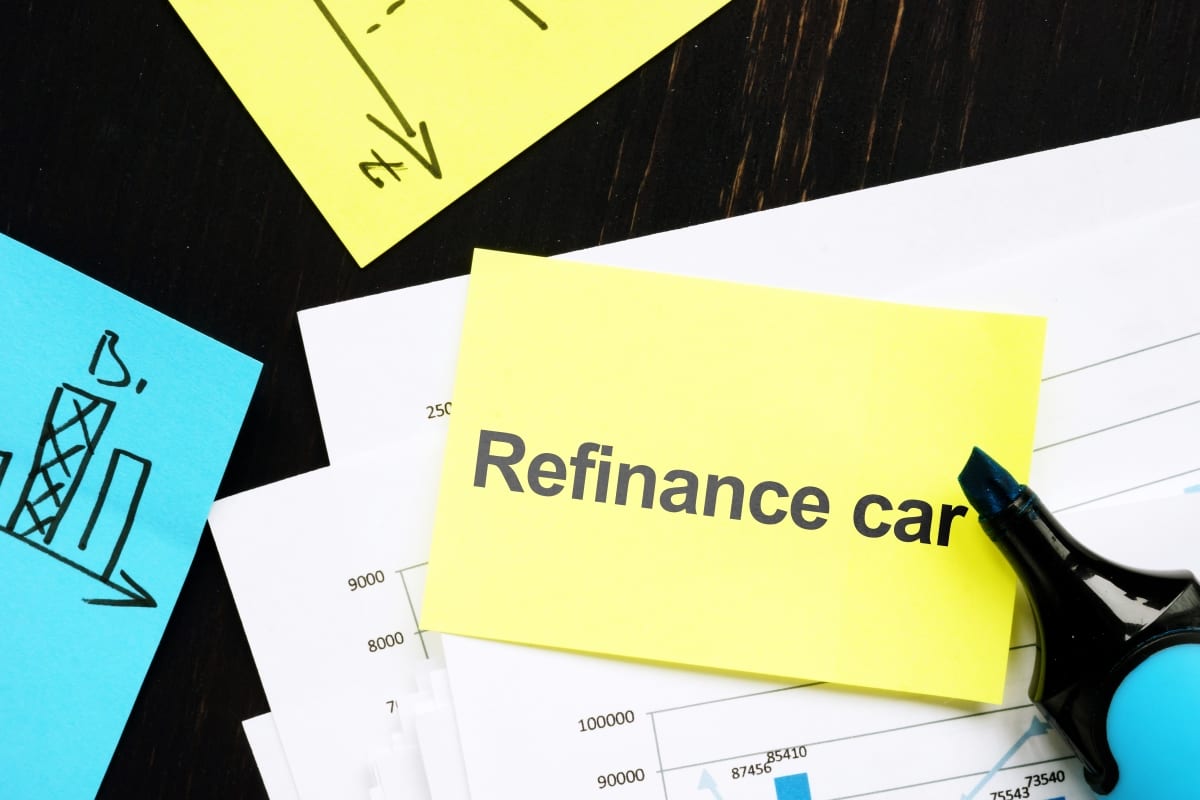Does Refinancing a Car Affect Your Car Insurance?

If you’re thinking about refinancing the loan on your vehicle and wondering whether it will affect your car insurance premiums or coverages, you’re in the right spot. There is a good chance that refinancing will alter your car insurance premiums. But exactly how much? It’s difficult to say until we know all the details.
We know that car insurance is complicated. And like every other car insurance question, there is no simple answer. But EINSURANCE.com is here to help! Here we’ll explain how and why refinancing your car or truck will likely affect your insurance.
First, let’s think about the specific considerations insurers have when putting together your car insurance quote.
What Matters to Auto Insurers When Creating a Car Insurance Quote?
The whole purpose of auto insurance is to cover your risks. Cars are expensive to buy, costly to repair, and quite dangerous! When getting a car insurance quote, you’ll be asked about:
- the make and model of your car
- the age and value of your car
- the mileage shown on your odometer
- the VIN and title status
- accident history of both the driver and the car
- garaging location
- the primary use of the vehicle (whether it’s for pleasure, commuting, or a work truck)
- average commuter miles, or average annual miles
- lienholder information (the bank, organization or person you make a car payment to)
- your personal information, like age, gender and marital status
- any other drivers in the home who might have access to the car
- your claims history
As a consumer, you must be completely honest when answering these questions. Much of this information is available to insurance companies. They will find out the truth in any case. If they discover that you’re dishonest about your age or driving history for instance, you may present a moral hazard, and the insurer might increase your rates or even cancel your policy!
Of all these details, the value of your vehicle and the amount of your loan are arguably the most critical factors. Let’s explore those first.
The Amount of the Loan Affects Your Insurance Premiums
It makes perfect sense that smaller loans will cost less to insure. Insurance companies are responsible for paying back most of the loan if you wreck the vehicle or if it’s stolen. So it costs much less to insure an $18,000 Ford Focus than a $90,000 Ford Raptor. No major revelations there.
But there’s more to think about.
Let’s imagine you bought a brand new Mazda 6 in 2017. To keep the math easy, we’ll say the price of the car was $26,000 and the out-the-door price (including taxes, tags and all that) was $30,000. You put no money down and get a loan for the full thirty grand.
Understand that auto insurance is about indemnity. In other words, it exists to make you whole after a loss, but not to put you in a better place, financially speaking. But what does that mean in real life with your new Mazda?
- If you get in a major wreck on the way home from the dealer and total the car, your insurance will pay back the value of the car to the bank –but no more. (More on that in a moment.)
- If you get in a minor accident with your new Mazda, full coverage car insurance will pay to repair it (beyond your deductible), but not to upgrade it.
- If your car gets stolen, insurance will pay the value of the car back, but no more.
So, car insurance will pay for the value of the vehicle, but not those extra thousands of dollars in taxes, tags and the like. This puts consumers in a tough position if they are “upside-down” or “underwater” on an auto loan.
In other words, if you owe more on a loan than a vehicle is worth, you’ll be responsible to the bank for the difference if you total the car!
And it would be a real disappointment to owe four grand on a loan for a brand new Mazda that got totaled. This is where GAP insurance comes into play, and we start to see the ripples in the cost of insurance when you refinance a vehicle.
Depreciation and GAP Insurance
The moment you signed the papers and drove your new Mazda off the dealer’s lot, it was no longer a “new” car, but a “used” car. Your Mazda’s value dropped thousands of dollars. By the time you got home, you owed $30,000 for a vehicle that was worth maybe $20,000. This is called depreciation, and it keeps happening over the lifetime of the car.
According to Nerdwallet: “Your car’s value decreases around 20% to 30% by the end of the first year. From years two to six, depreciation ranges from 15% to 18% per year, according to recent data from Black Book, which tracks used-car pricing. As a rule of thumb, in five years, cars lose 60% or more of their initial value.”
So you’re not alone, many Americans are “upside-down” on auto loans.
- GAP insurance is a particular type of car insurance that is sometimes sold by dealers. It’s guaranteed to pay the difference between your car’s value and the debt you owe on it. You should always buy GAP if it’s offered!
Now, let’s imagine a few years have gone by. You’ve been making your car payments religiously and you’re considering refinancing the loan.
Refinancing an Auto Loan & Car Insurance Premiums
In most cases, you’ll only be able to refinance your auto loan if you have equity (meaning you owe less on the car than what it’s worth.)
Let’s imagine you’ve been driving your Mazda for three years, and you’ve put 40,000 miles on it. We’ll guess your car is worth $15,000, and you only owe $10,000 on it now.
The good news is that you no longer need GAP insurance! You’ll refinance your loan, and your auto loan payments are much smaller too. As long as you’ve been a safe driver, with no at-fault accidents, DUIs or speeding tickets, there’s a good chance your car insurance premiums will be cheaper.
But again, insurance topics are rarely simple, and there are always exceptions to the rules. If the model of your vehicle has been found to be dangerous (like SUVs that have a reputation for rolling over) or if you’ve had an accident or two, your insurer will consider these issues.
Ultimately, there’s a good chance your car insurance rates will decrease if you refinance. Know that every insurance customer has an ideal customer in mind, and ever car insurance policy is a unique contract. If you’d like to learn more about car insurance after a refinance, or if you’d like to get some car insurance quotes, let’s talk!

 EINSURANCE
EINSURANCE EINSURANCE
EINSURANCE EINSURANCE
EINSURANCE